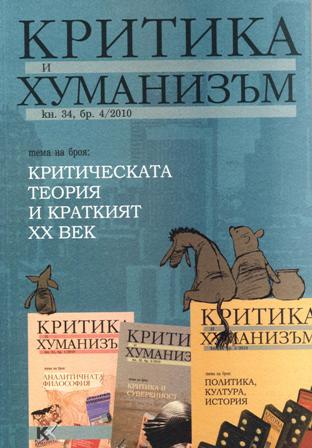Макс Вебер и критиката на Критическата теория
Max Weber and the Critique of Critical Theory
Author(s): Johannes WeissSubject(s): Philosophy
Published by: Фондация за хуманитарни и социални изследвания - София
Keywords: Max Weber; Critical Theory; Frankfurt School; Horkheimer; Adorno; Marcuse, Habermas; critique of the Critical Theory; Weber’s heritage
Summary/Abstract: Max Horkheimer thought Max Weber to be he foremost protagonist of ‘traditional,’ i.e. non-critical by defi nition, theory. So, Weber’s sociological program used to be regarded as being fundamentally opposed to – and irreconcilable with – what Critical Theory (Frankfurt style) was all about. A closer look shows that things are by no means that simple. Leading theorists of the Frankfurt School (Horkheimer himself and Adorno, Marcuse and, above all, Habermas) were, contrary to many Marxist dogmatists, well aware that Weber had to be taken very seriously – not only politically but also scientifi cally – and that there was a lot to learn from him with regard to the dynamics and pathologies of modern societies. This holds particularly – and the longer the more – true for Adorno who in his last university lecture (“Introduction to Sociology,” Summer 1968) gave much room to Max Weber as being the greatest sociologist of his time. More than that: Weber’s methodology may aptly be considered to be a kind of purgatory in Critical Theory’s long, incessant process of selfcriticism. This process, and Critical Theory altogether, comes to an end in the later work of Jürgen Habermas. Here, Weber has become quite obviously one of the most important socio-philosophical authorities with regard to an adequate, and suffi ciently critical, understanding of our time.
Journal: Критика и хуманизъм
- Issue Year: 2010
- Issue No: 34
- Page Range: 85-96
- Page Count: 12
- Language: Bulgarian
- Content File-PDF

